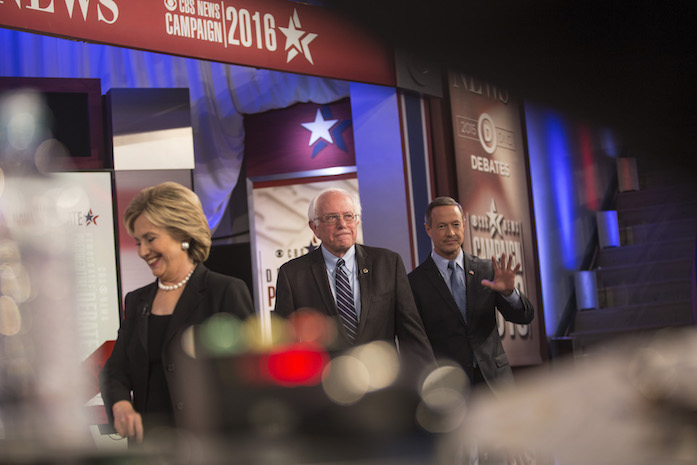Presidential candidates will have to soon face the music in Iowa.
On Monday evening, the Democratic presidential candidates held a town hall in Des Moines a week before Iowa’s first-in-the-nation caucuses.
The town hall, which was hosted by CNN at Drake University, was main forum before the caucuses on Feb. 1. Each candidate was interviewed for about 40 minutes, and each was presented with questions from undecided voters in Iowa.
Here are the takeaways from Monday’s event.
The big question
When Sanders announced his campaign in May 2015, there was doubt the self-declared socialist would even become a big enough opponent for Hillary Clinton — who, at that time, looked like she was going to seal the Democratic presidential nomination. Fast forward more than half a year later, and Sanders is neck-to-neck with Clinton.
Sanders, who has advocated for a single-payer health-care plan and tuition-free colleges, has rode his campaign to this point on his “big ideas.”
Over the course of the months, voters have asked how the Vermont senator was going to pay for his new policies. That question was presented to Sanders at the town hall.
And Sanders, who thrives in formats like that, answered straight to the point. Taxes will go up for a single-payer health-care system, but with private health insurance companies eliminated, then premiums will be less of a factor families will have to take into account.
RELATED: One week out — how to caucus
There were moments when Sanders was sympathetic, when he was funny, and knew exactly what his policies were about and how he could make them succeed. Six days until the Iowa caucuses, and Sanders is looking pretty good.
O’Malley’s Defense
O’Malley, who has been polling in the single digits most of his campaign, was presented with a single question about caucus night:
If your groups do not reach 15 percent of attendees to become viable, who will you tell your supporters to caucus for instead?
O’Malley stuck to his ground, and in one of his strongest moments in his campaign, urged his supporters to continue to fight for him.
Even online, voters came to O’Malley’s side, calling the question rude but adding that O’Malley answered it graciously.
Despite what polling is saying of O’Malley compared with his opponents, it is too early to write off O’Malley before caucus night.
The platform Clinton needed
This primary election cycle is becoming reminiscent of the 2008 cycle. It has been said before.
Clinton, who seemed like she was going to be the 2008 Democratic presidential nominee, soon saw then Illinois Sen. Barack Obama catch up with her, dominating the Iowa caucuses.
Clinton is now facing the same trend with Sanders, who has caught up with her and even surpassed her in some national and state polling.
On Monday night, however, Clinton was as confident as she has been in the past. Maybe she was still feeling the endorsement she won from Iowa’s largest newspaper, the Des Moines Register. But either way, Clinton seemed unfazed by voters and the moderator comparing and contrasting her campaign with Sanders.



